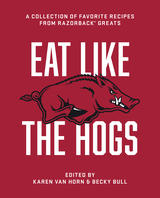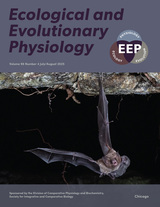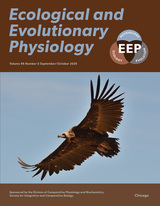
“Brilliant...full of perceptions and rewards that send one scurrying back to the text.” —John Bayley, New York Review of Books
The finest reader of her generation retraces four great poets’ first steps across the threshold of genius.
To find a personal style is, for a writer, to become an adult; and to write one’s first “perfect” poem—a poem that wholly and successfully embodies that style—is to come of age as a poet. By looking at the precedents, circumstances, and artistry of the first perfect poems composed by John Milton, John Keats, T. S. Eliot, and Sylvia Plath, Coming of Age as a Poet offers rare insight into this mysterious process, and into the indispensable period of learning and experimentation that precedes such poetic achievement.
Milton’s “L’Allegro,” Keats’s “On First Looking into Chapman’s Homer,” Eliot’s “The Love Song of J. Alfred Prufrock,” and Plath’s “The Colossus” are the poems that Helen Vendler considers, exploring each as an accession to poetic confidence, mastery, and maturity. In meticulous and sympathetic readings of the poems, and with reference to earlier youthful compositions, she delineates the context and the terms of each poet’s self-discovery—illuminating the private, intense, and ultimately heroic effort and endurance that precede the creation of any memorable poem.
With characteristic precision, authority, and grace, Vendler helps us to appreciate anew the conception and the practice of poetry, and to observe firsthand the living organism that breathes through the lines of a great poem.
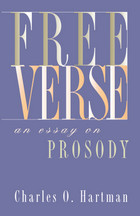
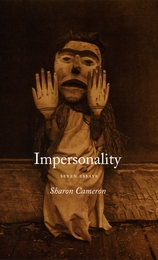
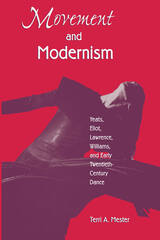

Beyond Lionel Trilling's classic definition of Modernism as anticultural and subversive, Margaret Dickie posits American Modernist poetry as both conservative and affirmative—conservative because it was dominated by the composition of the long poem, affirmative because these poems aimed to restore public themes to poetry, to instruct and improve, to "affirm the gold thread in the pattern," as Ezra Pound claimed.
Each poet discussed in this new study—T. S. Eliot, Hart Crane, William Carlos Williams, and Ezra Pound—began his career as an experimenter in brief lyrics and then, paradoxically, developed an ambition to write a long public poem. The poems they wrote—The Waste Land, The Bridge, Paterson, and The Cantos—differed in length, in program, and in composition, but all were alike in their idealization of form, their commitment to the long poem, and the troubled and difficult process of their composition. Read together, they offer a new understanding of the Modernist sense of form shared by these quite different writers.
Tracing the development of each poem from the poet's initial announced plans through the lengthy writing and reconsideration of purpose, Dickie offers a new history not only of each poem but of the American Modernists and the ways they adapted the avant-garde tendencies of European Modernism to their own native needs.

T. S. Eliot and Ezra Pound dominated English poetry and criticism in the first half of the twentieth century. At the center of their practice is what Maud Ellmann calls the poetics of impersonality. Her examination yields a set of superb readings of the major poems of the modernist canon. Eliot and Pound mounted attack after attack on nineteenth-century poetry from Wordsworth to Swinburne, poetry they believed nurtured an unhealthy cult of the self. They wanted poetry to be a transparent medium that gives its readers access to reality and meaning. Poetry, they argued, should efface itself, because writing that calls attention to itself calls attention to the distinctive personality of the writer. Ellmann convincingly shows that their arguments are self-contradictory and that their efforts to eliminate personality merely reinstate it in a different guise.
After an initial section on Eliot’s relation to Bergson, Ellmann goes on to analyze Eliot’s “Tradition and the Individual Talent” and the later After Strange Gods, the early poems, The Waste Land, and Four Quartets; she then turns to Pound’s Personae, particularly “Mauberley,” and the Cantos. Ellmann looks for the contradictions inherent in modernist literary ideology and deftly teases out their implications. Her writing is stylish in the best sense and, in terms of its theoretical vocabulary and assumptions, impeccable. This book marks the debut of a major literary critic.
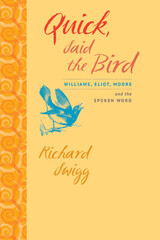
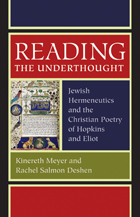
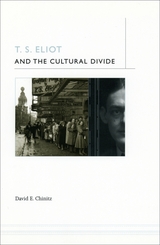
David Chinitz argues that Eliot was productively engaged with popular culture in some form at every stage of his career, and that his response to it, as expressed in his poetry, plays, and essays, was ambivalent rather than hostile. He shows that American jazz, for example, was a major influence on Eliot's poetry during its maturation. He discusses Eliot's surprisingly persistent interest in popular culture both in such famous works as The Waste Land and in such lesser-known pieces as Sweeney Agonistes. And he traces Eliot's long, quixotic struggle to close the widening gap between high art and popular culture through a new type of public art: contemporary popular verse drama.
What results is a work that will persuade adherents and detractors alike to return to Eliot and find in him a writer who liked a good show, a good thriller, and a good tune, as well as a "great" poem.

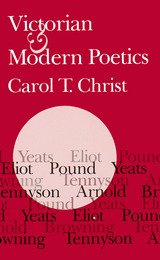
READERS
Browse our collection.
PUBLISHERS
See BiblioVault's publisher services.
STUDENT SERVICES
Files for college accessibility offices.
UChicago Accessibility Resources
home | accessibility | search | about | contact us
BiblioVault ® 2001 - 2025
The University of Chicago Press


